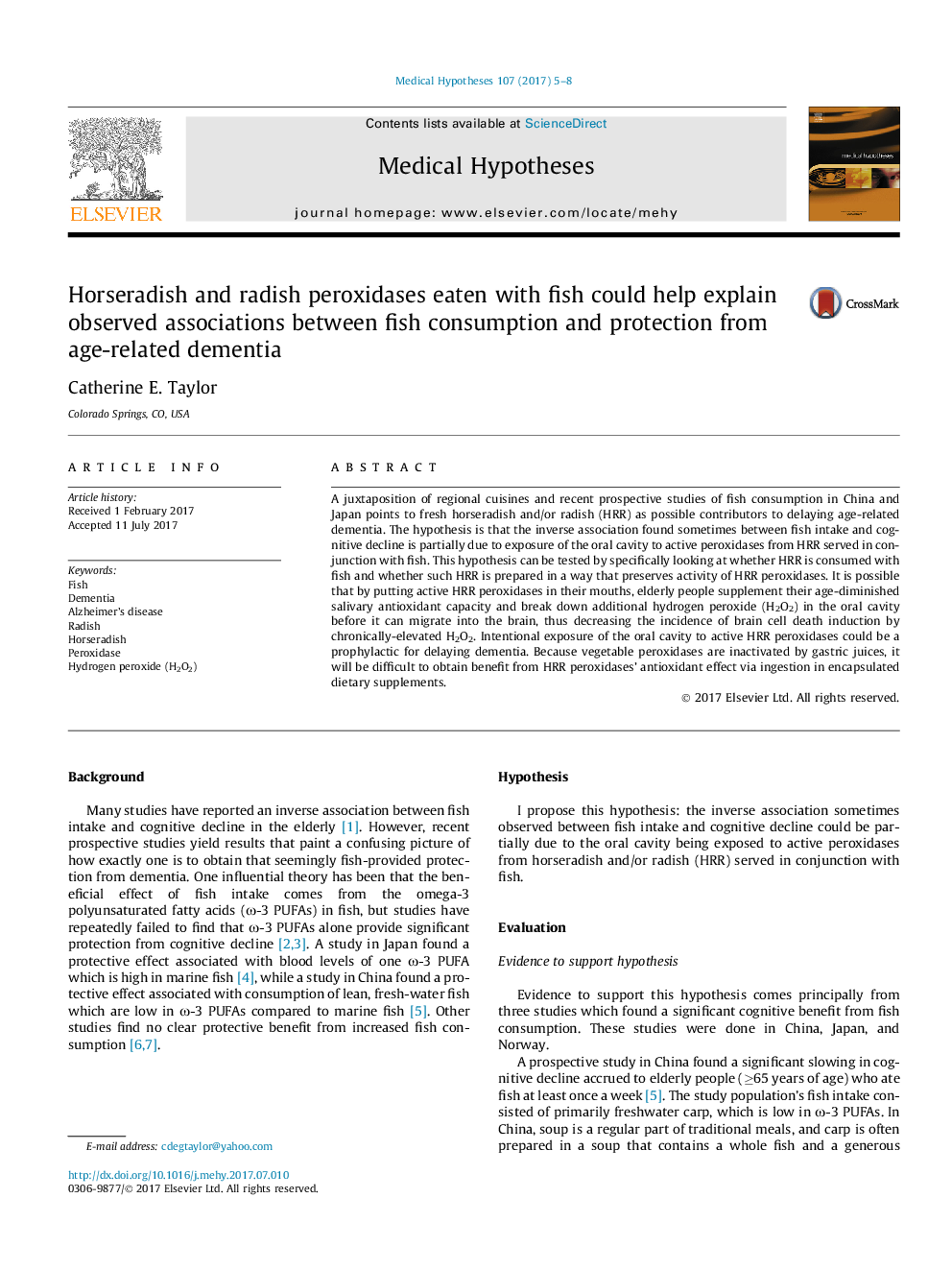| Article ID | Journal | Published Year | Pages | File Type |
|---|---|---|---|---|
| 5548363 | Medical Hypotheses | 2017 | 4 Pages |
A juxtaposition of regional cuisines and recent prospective studies of fish consumption in China and Japan points to fresh horseradish and/or radish (HRR) as possible contributors to delaying age-related dementia. The hypothesis is that the inverse association found sometimes between fish intake and cognitive decline is partially due to exposure of the oral cavity to active peroxidases from HRR served in conjunction with fish. This hypothesis can be tested by specifically looking at whether HRR is consumed with fish and whether such HRR is prepared in a way that preserves activity of HRR peroxidases. It is possible that by putting active HRR peroxidases in their mouths, elderly people supplement their age-diminished salivary antioxidant capacity and break down additional hydrogen peroxide (H2O2) in the oral cavity before it can migrate into the brain, thus decreasing the incidence of brain cell death induction by chronically-elevated H2O2. Intentional exposure of the oral cavity to active HRR peroxidases could be a prophylactic for delaying dementia. Because vegetable peroxidases are inactivated by gastric juices, it will be difficult to obtain benefit from HRR peroxidases' antioxidant effect via ingestion in encapsulated dietary supplements.
